SERIES REVIEW – The first season of the Halo streaming series, based on the legendary 23-year-old video game franchise and its novel adaptations, was a veritable rollercoaster of quality when it first debuted on Paramount+, and then made its way to SkyShowtime with Hungarian dubbing. While it featured some stellar episodes, it was marred by a few mind-numbingly dumb ones, and overall, the story just didn’t seem to come together. Moreover, most of the characters, including Pablo Schreiber’s portrayal of Master Chief, were less than convincing. Hence, we approached Season 2 with a healthy dose of skepticism, despite the creators and Schreiber themselves promising the moon and the stars – or rather, the entire Halo universe – during their press tours. Thanks to SkyShowtime and the streaming channel’s distributor, Red Lemon, we had the opportunity to watch the first two episodes of the second season on the big screen at Etele Cinema, popcorn and cola in hand, giving the franchise another chance.
When the first season premiered, everyone was eager to see if it would live up to the original material, while skeptics had already written it off. Unfortunately, even with the most generous interpretation, the result was mixed at best. While there were some great episodes that captured the essence of the games, many dumb moments significantly dragged down the overall quality of the series. The biggest issue was the somewhat slapdash main storyline that just didn’t gel, and frankly, Pablo Schreiber’s Master Chief, along with the rest of the cast, didn’t deliver particularly convincing performances. Though the first and last episodes left a somewhat positive impression, the series as a whole barely managed to hit a strong average, occasionally dipping into terrible lows.
It’s no surprise, then, that Halo’s second season essentially rebooted the project, completely overhauling the creative team and starting from scratch. During the marketing and press tour, lead actor Pablo Schreiber and new showrunner/writer David Weiner attempted to minimize the damage. They emphasized future focus on fan-favorite events taken directly from the original material and promised that the painfully stupid episodes of the previous season would be forgotten. Thus, it’s all the more disappointing that, based on the first two episodes shown at a press event, we seem to be exactly where we left off last season.
The man behind the mask
Believe it or not, the first fifteen minutes started off with a bang. After quickly walking back some problematic creative decisions from the first season’s finale (including Master Chief’s near-death and resurrection under the control of the AI Cortana), we find ourselves on the battlefield six months later. Spartan 117 and the “Silver Team” – among whom the team dynamics of Kai (Kate Kennedy), Vannak (Bentley Kalu), and Riz (Natasha Culzac) are much more believable and better developed, alongside well-known original characters from the franchise – conquer the scattered Outer Colonies in the face of the Covenant forces through a thrilling, highly visual, and impeccably executed action sequence.
Weiner, his team of directors (led by Debs Paterson and Craig Zisk), and their cinematographer, Carl Sundberg, present a visually clean, hard, brutal, and incredibly energetic action scene – ironically achieved by somewhat “masking” the specific action and hiding the less convincing effects and VFX work with environmental effects such as rain and fog, and generally darker lighting. The first-person shooter perspective shots known from the first season were completely abandoned. The result, in this quarter-hour, is genuinely impressive: you can almost feel the brutal hits and the impact of bullets between the Spartans and the Covenant aliens.
On the other hand, the season’s main dramatic arc also gives reason for optimism. Master Chief and his Spartan comrades, still struggling with PTSD and the physical and mental scars from their past battles, are dissatisfied with “low-risk” (read: trivial) missions and “babysitting” tasks that keep them away from the front lines. Ironically, John himself, despite being the “savior of humanity and superweapon,” is deemed unfit for service due to his mental instability, while the injured team member, Riz, receives one of the most interesting subplots as she contemplates what life might be like outside the strict, suffocating Spartan routine.
The introduction of new characters, such as the aggressively hostile intelligence officer, James Ackerson (played by Joseph Morgan in a sadly one-dimensional, hammy manner) and Marine Sergeant Perez (Cristina Rodlo), creates an interesting narrative thread about our heroes being mere pawns in the military’s propaganda machine.
Amid the political machinations, an important and interesting theme comes to the fore: Spartans are not made by their famed MJOLNIR armor. “Everyone knows the Master Chief,” a character says in one scene, “but does anyone know the real John?” The focus, then, is on the fact that beyond the externalities, the true, “flawed” human being matters most.
Promises, promises…
Unfortunately, after a promising start, the same issues that plagued the first season resurface, at least in these first two episodes. Despite promises that the balance between exciting action scenes and a much less convincing, messily constructed, confusing plot would finally be found, the first episode of the second season opens with some of the season’s most standout moments (and allegedly, according to international critics who have seen two more episodes, the fourth episode surprises viewers with a similarly impactful scene featuring a massive, Game of Thrones-style battle). However, the remainder of the first two episodes painfully spends too much time in offices, corridors, and other, much less exciting military or similar locations.
Moreover, it’s in these scenes that the embarrassingly dumb, pathos-filled dialogue truly stands out. Watching the series with our colleague ROD, we both found ourselves predicting the dialogues in our heads, so predictable and clichéd were they. Additionally, most of the B-list actors in the series struggled mightily with their craft – admittedly, it was not an easy task to perform these clichéd, lame scenes.
Dr. Halsey reloaded
Although we’ve only seen two episodes and the fall of Reach (a key moment in the Halo canon) will be covered in later episodes (which, according to critics, will be slightly better), these two – which could be seen as an introduction – are painfully weak so far. The story is at times incredibly muddled, either incomprehensible or simply tiresomely uninteresting. We are forced to see repeated attempts at manipulation by the smarmy Ackerson, the new boss (who replaced Dr. Halsey kept in a secret location), either targeting Master Chief or other Spartan members.
Meanwhile, we also see Dr. Catherine Halsey (still portrayed by the deserving Natascha McElhone), tortured in a “psychiatric facility” (or something similar) by the repeated visits of a cloned, android-like little girl who plays with her. If Halsey tries to inquire about the layout of the place or who the “big boss” is, the girl begins to bleed from the nose and then dies in a rather comical manner. This scene is repeated several times, each with a new cloned girl, giving the whole thing the feel of a terribly forced and plastic Tarkovsky imitation , perhaps drawing on “Solaris” or “Stalker” for inspiration.
So far, rather lackluster…
But alongside the Halsey scenes, the others are just as clumsy, uninteresting, and poorly directed. Once again, we have Soren (Bokeem Woodbine), the former Spartan turned pirate and underworld leader, whose character and associated story elements are as unengaging and amateurishly developed as in the previous season – if not more so. The first two episodes have yet to feature “Squirrel” and the other comically bad Hungarian characters (though the fault lies not with the otherwise excellent Hungarian actors, but with the script; their only fault being their agreement to these roles), but I have no doubt that their time will come, and we’ll see them again.
Finally, we’re reintroduced to Kwan Ha, played by Yerin Ha, who had evolved into a rather likable and interesting character in the first season. Here, however, her role in the main story is so far completely irrelevant and her backstory is just as confusing, not to mention the sudden introduction of “slaves” into this universe without proper explanation or development. And while on the topic: the entire social and societal background is incredibly muddled, even though understanding this aspect of the Halo universe is crucial due to these scenes.
“Spartans never die,” we hear again, echoing a popular saying from the franchise’s novels (here, quite heavy-handedly). But looking back at the mixed bag that was the previous season, perhaps it’s time for Master Chief – or at least this streaming-adapted version of Halo – to say farewell. At least as far as these two episodes are concerned, it’s conceivable that the series could find its footing in later episodes – as was occasionally the case in the first season. Should this happen, we will also write a review for the entire season.
-Gergely Herpai (BadSector)-
Halo Season 2, Episodes 1-2
Direction - 4.2
Actors - 5.2
Story - 2.8
Visuals/Music/Sounds/Action - 7.4
Ambience - 5.3
5
AVERAGE
The Halo series returns, but after a well-crafted, brief action scene, we unfortunately find ourselves back where we were with the weaker episodes of the previous season. In its first two episodes, the series attempts to captivate viewers, but due to a weakly arced and poorly constructed plot, numerous uninteresting threads, superficial character portrayal, and terribly written dialogues, it once again falls short of the worthy success that this legendary game franchise deserves.

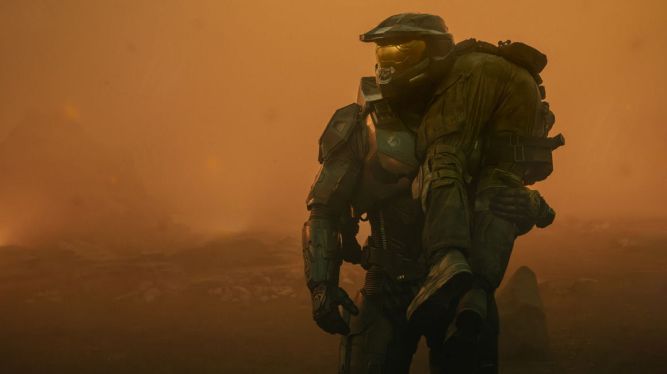
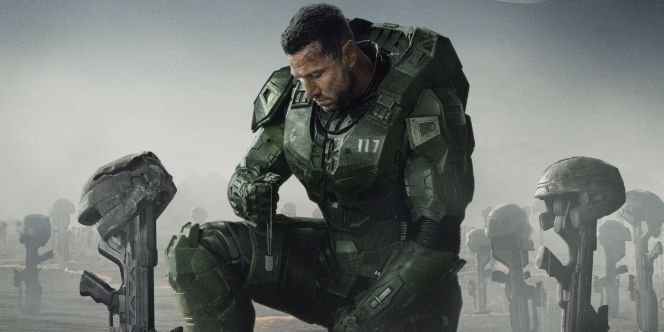
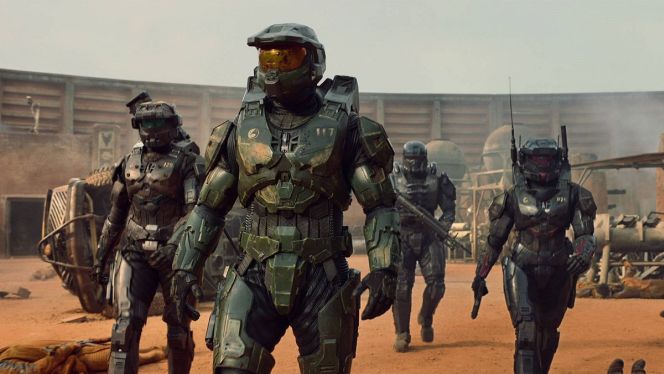









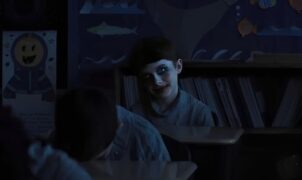



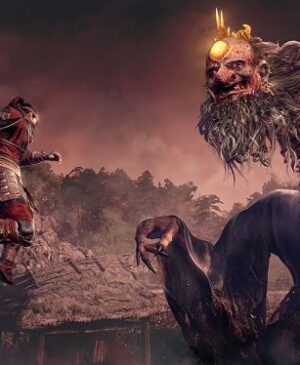
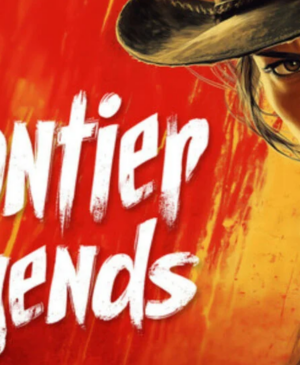
Leave a Reply